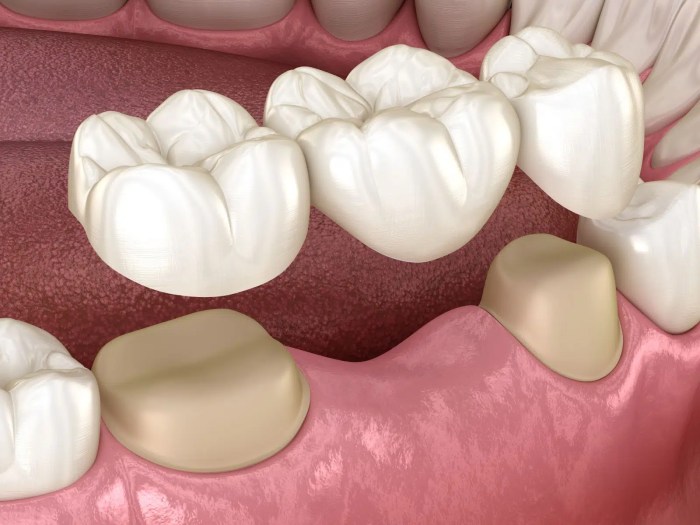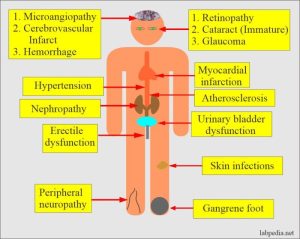
Get ready to dive into the world of cosmetic dentistry procedures! From teeth whitening to veneers, this topic is all about boosting your smile and confidence with the latest trends and innovations. Brace yourself for an informative and engaging ride!
Cosmetic Dentistry Procedures
Cosmetic dentistry procedures are aimed at improving the overall appearance of a person’s smile. These procedures can address issues such as stained teeth, misaligned teeth, gaps between teeth, and more.
Teeth Whitening
One of the most common cosmetic dentistry procedures is teeth whitening, which helps brighten and whiten teeth that have become discolored over time due to factors like aging, smoking, or consuming certain foods and drinks.
Dental Veneers
Dental veneers are thin shells made of porcelain or composite resin that are bonded to the front surface of teeth to improve their appearance. They can be used to correct chips, cracks, stains, and gaps in teeth.
Dental Implants
Dental implants are artificial tooth roots that are surgically implanted into the jawbone to replace missing teeth. They provide a stable foundation for dental crowns, bridges, or dentures, restoring both function and aesthetics.
Invisalign
Invisalign is a popular alternative to traditional metal braces for straightening teeth. It consists of clear, removable aligners that gradually shift teeth into the desired position, offering a more discreet and comfortable orthodontic treatment option.
Benefits of Cosmetic Dentistry
Cosmetic dentistry not only enhances the aesthetics of a smile but can also improve overall oral health and boost self-confidence. By addressing dental imperfections, individuals can enjoy a more attractive smile and maintain better oral hygiene.
Difference from Traditional Dentistry
While traditional dentistry focuses on preventing, diagnosing, and treating oral diseases and conditions, cosmetic dentistry primarily emphasizes improving the appearance of teeth and gums. Cosmetic procedures are elective and aesthetic in nature, rather than essential for oral health.
Latest Trends and Innovations
With advancements in technology, cosmetic dentistry continues to evolve and offer innovative solutions for enhancing smiles. Some of the latest trends include digital smile design, 3D printing for dental restorations, and minimally invasive techniques for achieving natural-looking results.
Cosmetic Dentistry vs. Cosmetic Surgery
When it comes to enhancing one’s appearance, both cosmetic dentistry and cosmetic surgery play crucial roles. While they both aim to improve aesthetics, they differ in procedures, risks, and outcomes. Cosmetic dentistry focuses on improving the appearance of the teeth and smile, while cosmetic surgery involves procedures on the face and body.
Procedures
- Cosmetic Dentistry: Procedures in cosmetic dentistry include teeth whitening, veneers, dental bonding, and gum contouring. These treatments are non-invasive and focus on enhancing the smile without major surgeries.
- Cosmetic Surgery: Cosmetic surgery involves procedures like rhinoplasty, facelifts, breast augmentation, and liposuction. These surgeries are invasive and require incisions, anesthesia, and longer recovery times.
Risks
- Cosmetic Dentistry: Cosmetic dental procedures generally have minimal risks, such as temporary sensitivity or discomfort. Complications are rare and usually minor.
- Cosmetic Surgery: Cosmetic surgeries carry higher risks due to the invasive nature of the procedures. Risks include infection, scarring, anesthesia complications, and unsatisfactory results.
Outcomes
- Cosmetic Dentistry: The outcomes of cosmetic dentistry focus on improving the smile, correcting dental imperfections, and boosting confidence. Results are natural-looking and long-lasting with proper care.
- Cosmetic Surgery: Cosmetic surgery can lead to dramatic changes in appearance, altering facial features or body shape significantly. Results are often permanent but may require maintenance over time.
Choosing Between the Two
- Patients might choose cosmetic dentistry over cosmetic surgery when they want to enhance their smile, correct dental issues, or improve oral health without undergoing major surgery.
- Cosmetic surgery is chosen when patients seek more drastic changes in their appearance, such as reshaping facial features or altering body contours that cannot be achieved through dental procedures.
Foot Health
Maintaining good foot health is crucial for overall well-being, as our feet support our entire body weight and are essential for mobility. Neglecting foot care can lead to discomfort, pain, and even more serious health issues. Here are some tips for keeping your feet healthy:
Tips for Maintaining Good Foot Health
- Wash your feet daily with soap and water, and make sure to dry them thoroughly, especially between the toes.
- Trim your toenails straight across to prevent ingrown nails.
- Moisturize your feet regularly to prevent dry, cracked skin.
- Wear properly fitting shoes that provide adequate support and cushioning.
- Avoid walking barefoot in public places to reduce the risk of infections.
- Rotate your shoes to allow them to air out and prevent odors.
Common Foot Problems and Solutions
| Foot Problem | Solution |
|---|---|
| Blisters | Apply a blister pad or bandage to protect the area and allow it to heal. |
| Plantar Fasciitis | Stretch your calves and wear supportive shoes with orthotic inserts. |
| Ingrown Toenails | Soak your foot in warm water and gently lift the nail to prevent it from growing into the skin. |
| Corns and Calluses | Use a pumice stone to gently exfoliate the rough skin and moisturize regularly. |
| Athlete’s Foot | Keep your feet clean and dry, use antifungal powder or cream, and wear breathable shoes. |
Heart Disease

Maintaining good oral health is not only important for a beautiful smile but also for your overall health, specifically in relation to heart disease. Studies have shown a strong connection between gum disease and heart disease, making it crucial to take care of your teeth to lower the risk of heart-related issues.
The Oral Health-Heart Disease Connection
- Poor oral health, especially gum disease, can lead to inflammation in the body. This inflammation can affect the heart and blood vessels, increasing the risk of heart disease.
- Bacteria from gum disease can enter the bloodstream and contribute to the formation of plaque in the arteries, potentially leading to heart attacks or strokes.
- Regular dental check-ups and proper oral hygiene, such as brushing and flossing daily, can help prevent gum disease and reduce the risk of heart disease.
Health Diabetes
Diabetes can have a significant impact on oral health, as individuals with diabetes are at a higher risk of developing gum disease, tooth decay, and other oral health issues. It is essential for individuals with diabetes to take extra care of their oral health to prevent complications and maintain overall well-being.
Link Between Diabetes and Oral Health
- Poorly controlled blood sugar levels can lead to an increased risk of gum disease. High blood sugar levels can provide an ideal environment for bacteria to thrive in the mouth, leading to inflammation and infection of the gums.
- Individuals with diabetes may experience dry mouth, which can increase the risk of tooth decay and oral infections. Saliva plays a crucial role in washing away food particles and neutralizing acids in the mouth.
- Diabetes can also affect the body’s ability to heal, making it harder to recover from oral surgeries or dental procedures. This can lead to complications and delayed healing.
Tips for Managing Oral Health with Diabetes
- Maintain good blood sugar control through proper diet, exercise, and medication as prescribed by your healthcare provider.
- Brush your teeth at least twice a day and floss daily to remove plaque and prevent gum disease.
- Visit your dentist regularly for check-ups and cleanings to catch any issues early and prevent complications.
- Avoid smoking, as it can worsen gum disease and other oral health problems.
Impact of Oral Health on Diabetes Management
- Poor oral health can make it challenging to control blood sugar levels, as infections in the mouth can cause inflammation and stress on the body, leading to insulin resistance.
- Gum disease has been linked to increased insulin resistance in individuals with diabetes, making it harder to manage blood sugar levels effectively.
- By taking care of your oral health, you can improve overall health outcomes and potentially reduce the risk of complications related to diabetes.
Eating Disorders

Eating disorders can have a significant impact on oral health, as they often involve behaviors that can damage teeth and gums. For example, frequent vomiting associated with bulimia can lead to erosion of tooth enamel, increased risk of cavities, and gum disease. On the other hand, restrictive eating patterns in conditions like anorexia can result in nutrient deficiencies that affect oral health, such as weakened enamel and gum tissues.
Importance of Dental Care During Eating Disorder Recovery
During the recovery process from an eating disorder, dental care plays a crucial role in maintaining oral health. Regular dental check-ups can help monitor and address any issues that may arise due to the eating disorder behaviors. Dentists can provide guidance on proper oral hygiene practices and recommend treatments to prevent further damage to the teeth and gums.
Advice on Maintaining Oral Health While Dealing with Eating Disorders
- Stay hydrated to help combat dry mouth, a common side effect of eating disorders that can contribute to dental problems.
- Brush your teeth gently with a soft-bristled toothbrush to avoid further enamel erosion.
- Use fluoride toothpaste and consider fluoride treatments to help strengthen tooth enamel.
- Avoid acidic foods and drinks that can exacerbate tooth erosion.
- Seek support from a dental professional who understands the specific challenges associated with eating disorders.
End of Discussion
As we wrap up our journey through cosmetic dentistry procedures, remember that a dazzling smile is just a procedure away. Keep exploring the possibilities and embrace the transformation waiting for you in the world of cosmetic dentistry.
FAQ Section
What are the most common cosmetic dentistry procedures?
The most common procedures include teeth whitening, veneers, dental implants, and crowns.
How does cosmetic dentistry differ from traditional dentistry?
Cosmetic dentistry focuses on improving the appearance of teeth, while traditional dentistry deals with oral health issues.
Can cosmetic dentistry help with crooked teeth?
Yes, procedures like braces, veneers, or clear aligners can help correct crooked teeth.





